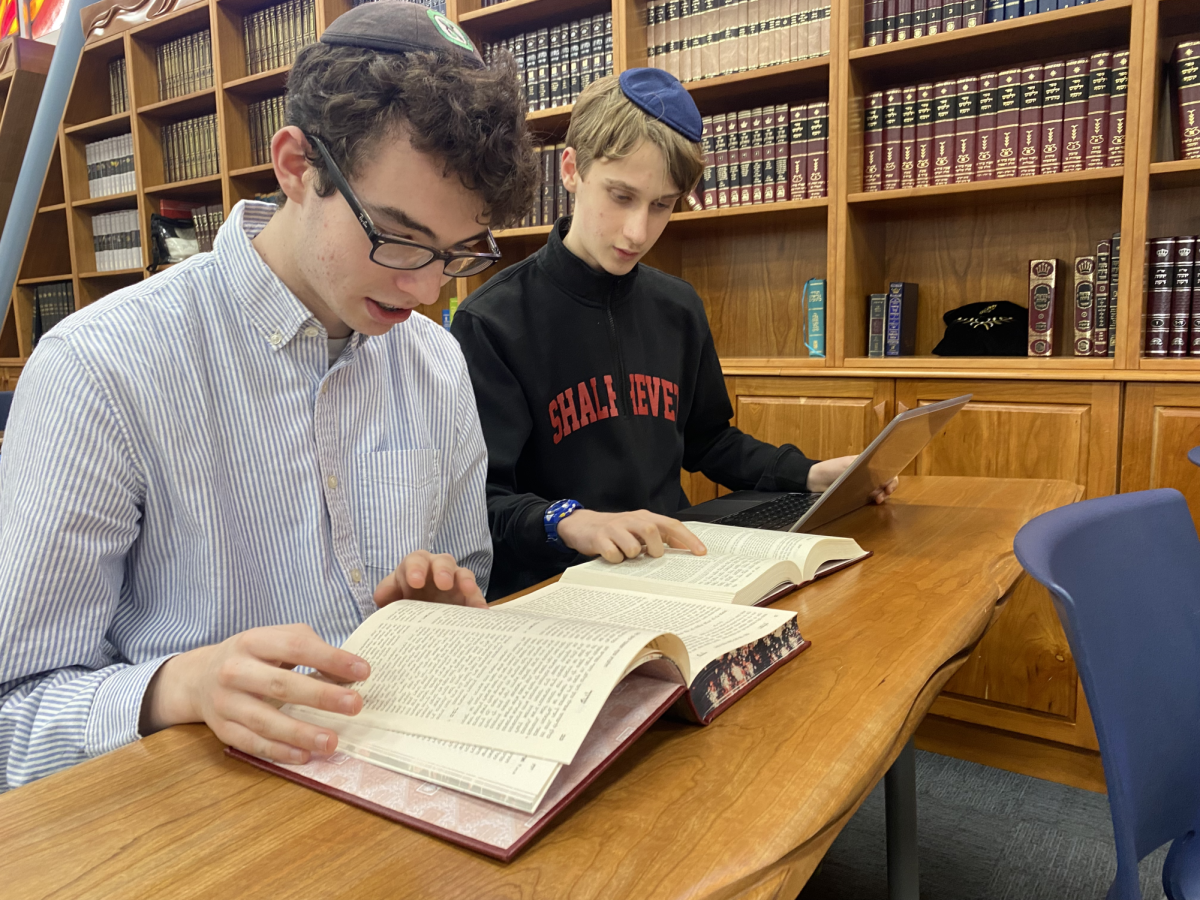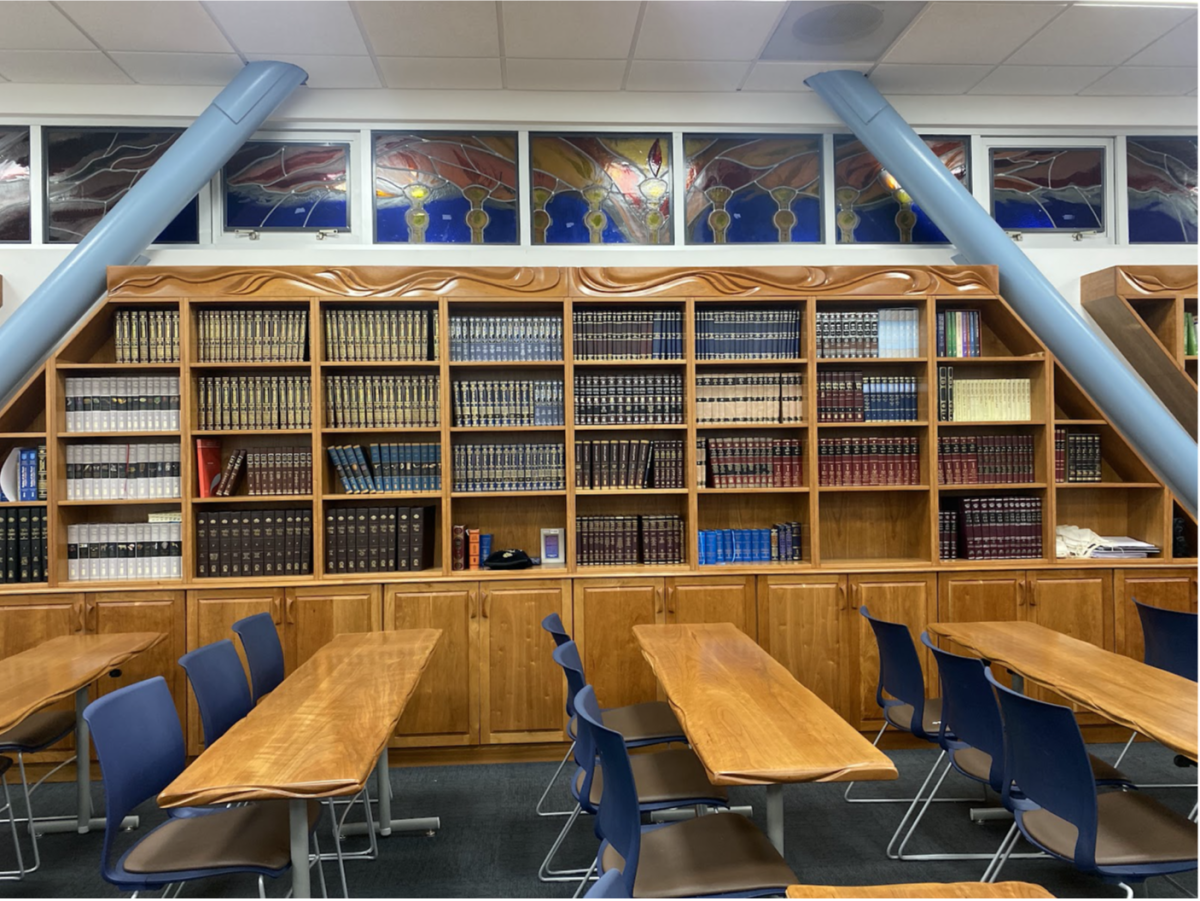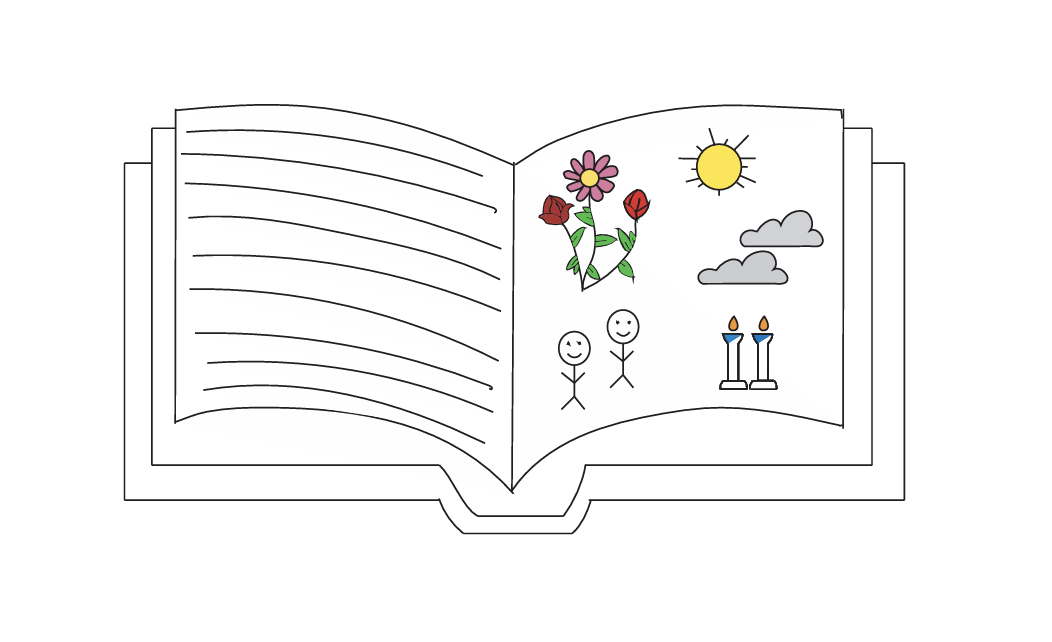In a packed Beit Midrash, three prominent area rabbis shared their views Dec. 2 on a variety of topics, disagreeing on whether women should carry the Torah scrolls and how many days of yom tov to keep while in Israel, but agreeing on Shabbat observance and whether to visit a church.
Each also shared his vision for the Los Angeles Jewish community of the future.
Rabbi Elazar Muskin of Young Israel of Century City, Rabbi Yosef Kanefsky of B’nai David-Judea, and Rabbi Kalman Topp of Beth Jacob Congregation took turns answering questions, some prepared in advance and some posed by students. Except for one ninth-grade class, the entire school along with a handful of parents and administrators attended the symposium, which Director of Technology, Mr. Yossie Frankel, streamed live at www.shalhevet.org.
“I watched part of it online, because my class didn’t attend,” said freshman Alex Schwartz, “but I thought it was really interesting how three prominent rabbis in the community were harshly disagreeing with each other.”
Judaic Studies teacher Rabbi Ari Schwarzberg presented the questions.
The discussion opened with the issue of girls carrying the Torah, which had been a topic of heated debate within the high school during the last few months and drew a few groans from the crowd. But the rabbis outlined starkly the opposing points of view.
All three agreed that halacha, or Jewish law, does not forbid women’s carrying or touching a Torah scroll. But they disagreed sharply over whether it was an appropriate thing for Orthodox women to do.
Rabbi Muskin said women should not be allowed to carry to the Torah during services in the synagogue. He cited the importance of tradition and recalled a conversation he had had with the late Rabbi Yosef Soloveitchik, a founder and leader of Modern Orthodoxy.
“The Rav was bitterly opposed to tampering with tradition in the Orthodox synagogue,” Rabbi Muskin said.
He went on to say that synagogues should follow an “etiquette,” and he compared people’s expectations about who would carry a Torah to where the fork and knife are placed on in a table setting. That placement, too, is learned at home, he said.
“Judaism is based in the home,” he added, “where women play a primary role and can achieve full spirituality.”
He said his late mother was someone who had a rich spiritual life, even though she never touched a Torah scroll.
Rabbi Kanefsky countered that many traditions had been altered in Orthodox synagogues in recent years, including the melodies used for prayers, the location of the women’s section, and women’s being allowed to shake a lulav.
Feminism, he said, fits well with Orthodox Jewish values, and increasing women’s opportunities for spiritual growth goes along with improvements in their religious education. He continued that since it’s halachically okay, not allowing women to carry the Torah would censor them.
“It’s great, and the more opportunities for mitzvot, the better,” Rabbi Kanefsky said.
Rabbi Topp took a middle ground, saying that sometimes new practices should be implemented, depending on the readiness and dynamic of a particular community. He said women should be able to touch the Torah with men carrying it, as is done in his synagogue, Beth Jacob.
He called his synagogue’s practice a “compromise” between the competing values of tradition and women’s participation.
The second question was how many days of yom tov should be celebrated if someone travels to Israel.
Rabbi Muskin said that people should ask and follow the directions of their own rabbi, and that he sometimes recommends keeping only one day while in Israel because people should go by the custom that most of those around them are following.
But Rabbi Kanefsky said that it was important to keep two days “to affirm the centrality of Israel,” since it creates a difference between those who live inside and those who live outside the land.
“Except for Yom Haatzmaut (Israeli independence day) and Yom Yerushalayim (Jerusalem day), second-day chag is the arguably most Zionistic holiday we have,” Rabbi Kanefsky said.
At this point the floor was opened for questions from the audience, and junior Laura Melamed asked if it was permissible for a Jewish person to visit a church, or whether that might be considered avoda zara, or idol worship.
Rabbi Muskin said that avoda zara is when a person enjoys doing something against his or her religion.
“If you go and are enjoying it and getting pleasure from it, don’t do it,” Rabbi Muskin said.
Rabbi Muskin said he himself had visited the Notre Dame cathedral in France but stayed outside.
Rabbi Topp said he had taken “a full tour” of the Sistine Chapel with his wife while in Rome, but left before entering the sanctuary.
The final question asked was what each rabbi would like to see changed about the Los Angeles Jewish community in the next 10 years. Rabbi Topp answered that he wants “to make Judaism user-friendly – but also challenging…and make a bigger impact on the world.”
Rabbi Kanefsky spoke of a need for a major Orthodox institution of higher education, which would attract more Jewish scholars to the city. But Rabbi Muskin, citing the issue of families not being able to pay for a Jewish education, said that the community should be focusing on strengthening its existing Jewish institutions before creating new ones.
“We aren’t leaders,” he said. “We haven’t dealt with real problems. My dream is that we strengthen what we have and look forward and tackle the real issues.”
Students generally enjoyed the program.
“I liked it – it’s interesting how rabbis from the same community have different ideas,” said senior Josh Meisel.
Junior Naomi Abehsera liked the questions from the audience best.
“I would have liked for there to be more time for the audience to ask questions, because it was really interesting to hear their un-prepared responses,” Naomi said.
Editor-in-Chief Leila Miller contributed to this story.







